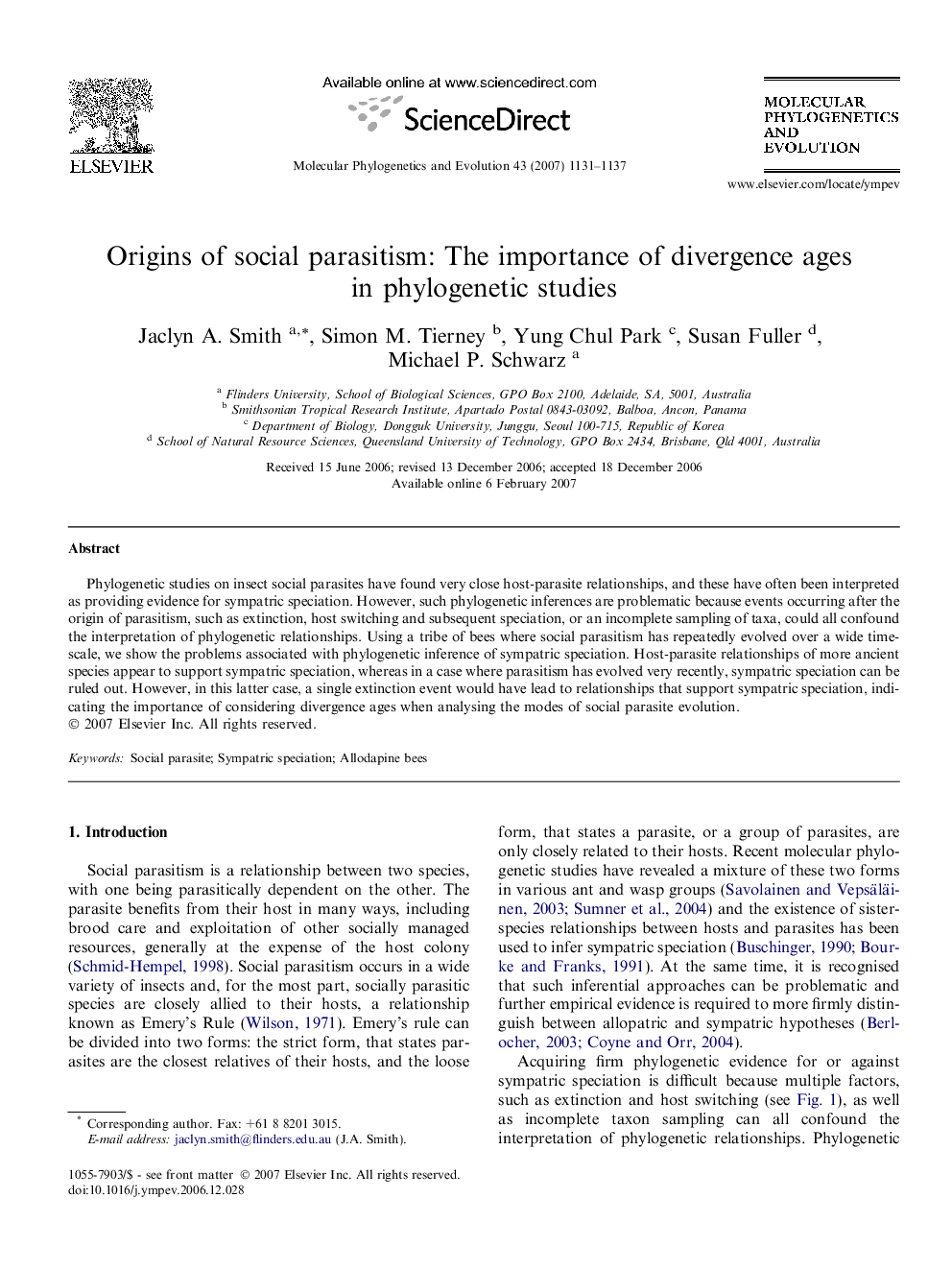| Article ID | Journal | Published Year | Pages | File Type |
|---|---|---|---|---|
| 2835628 | Molecular Phylogenetics and Evolution | 2007 | 7 Pages |
Abstract
Phylogenetic studies on insect social parasites have found very close host-parasite relationships, and these have often been interpreted as providing evidence for sympatric speciation. However, such phylogenetic inferences are problematic because events occurring after the origin of parasitism, such as extinction, host switching and subsequent speciation, or an incomplete sampling of taxa, could all confound the interpretation of phylogenetic relationships. Using a tribe of bees where social parasitism has repeatedly evolved over a wide time-scale, we show the problems associated with phylogenetic inference of sympatric speciation. Host-parasite relationships of more ancient species appear to support sympatric speciation, whereas in a case where parasitism has evolved very recently, sympatric speciation can be ruled out. However, in this latter case, a single extinction event would have lead to relationships that support sympatric speciation, indicating the importance of considering divergence ages when analysing the modes of social parasite evolution.
Keywords
Related Topics
Life Sciences
Agricultural and Biological Sciences
Ecology, Evolution, Behavior and Systematics
Authors
Jaclyn A. Smith, Simon M. Tierney, Yung Chul Park, Susan Fuller, Michael P. Schwarz,
